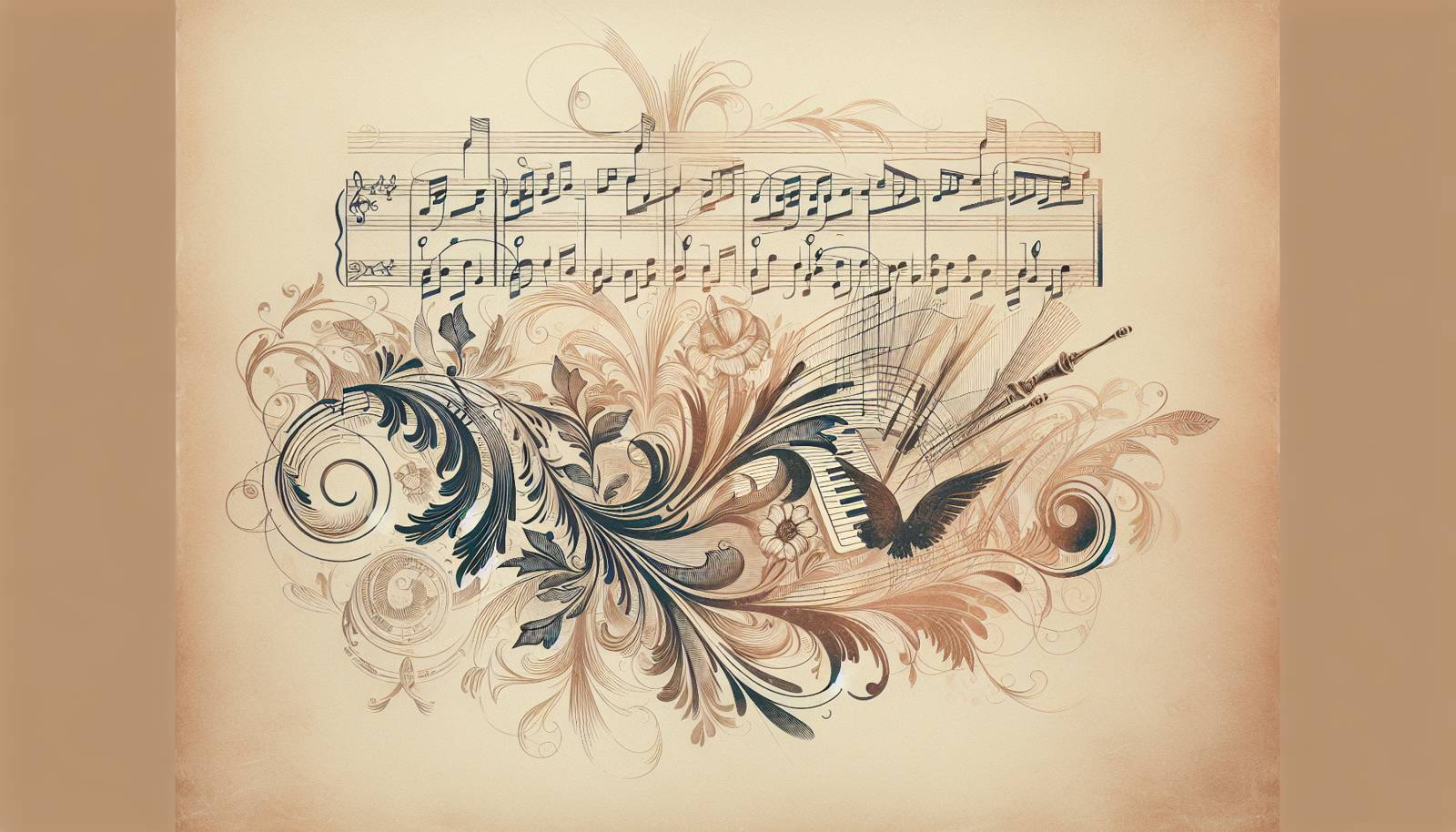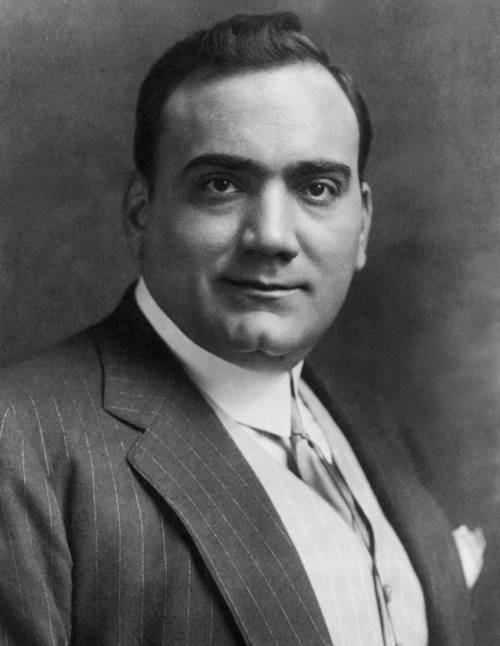
FAQ About Enrico Caruso

Who was Enrico Caruso?
Enrico Caruso was a renowned Italian operatic tenor, born on February 25, 1873, in Naples, Italy. He became one of the most famous opera singers of the early 20th century, known for his powerful and emotive voice. Caruso performed at major opera houses across Europe and North America, leaving a significant impact on the world of classical music.

What made Enrico Caruso famous?
Enrico Caruso gained fame for his extraordinary vocal talent and his pioneering role in the early recording industry. He was one of the first opera singers to make commercial recordings, helping to popularize opera music among a broader audience. His recordings sold in large numbers, contributing to his international fame, and he is often regarded as one of the founding fathers of recorded music.

When did Enrico Caruso debut at the Metropolitan Opera?
Enrico Caruso made his debut at the Metropolitan Opera in New York City on November 23, 1903, in the role of the Duke in Verdi's "Rigoletto." This performance marked the beginning of a long and successful association with the Met, where he became one of the most beloved figures in the company’s history.

What was Enrico Caruso's contribution to recorded music?
Enrico Caruso was a pioneering figure in the recording industry. He was among the first classical musicians to record extensively, beginning around 1902. His recordings brought opera to a global audience in an era when live performances were the only way to experience the genre. Caruso's records were wildly popular and sold millions of copies, helping to establish recording as a powerful medium for music distribution.

How did Enrico Caruso impact the world of opera?
Enrico Caruso had a profound impact on the world of opera with his exceptional vocal abilities and emotive performances. As one of the first true international opera stars, Caruso's presence helped elevate the public's interest in opera. His successful career opened doors for subsequent generations of tenors, and his recordings served as educational tools for aspiring singers and opera enthusiasts alike.

What voice type was Enrico Caruso known for?
Enrico Caruso was known for his tenor voice. He possessed a rich, powerful, and emotive vocal quality, with a broad range and a distinctive timbre that captivated audiences worldwide. His voice was well-suited to the operatic roles he performed, and he remains one of the most celebrated tenors in opera history.

Which opera roles were most associated with Enrico Caruso?
Enrico Caruso is best remembered for his roles in operas by composers such as Verdi and Puccini. Some of his most famous roles included the Duke in "Rigoletto," Radames in "Aida," Cavaradossi in "Tosca," and Canio in "Pagliacci." He was particularly noted for his performances in "La Bohème," where he sang the role of Rodolfo, and "Cavalleria Rusticana," where he played Turiddu.

What was Enrico Caruso's most famous recording?
Among Enrico Caruso's many recordings, one of the most famous is "Vesti la giubba" from Leoncavallo's opera "Pagliacci." This recording showcases his dramatic interpretation and powerful voice, and it remains a classic in the history of recorded opera music. Caruso's recordings of "La donna è mobile" from "Rigoletto" and "Che gelida manina" from "La Bohème" are also highly acclaimed.

When did Enrico Caruso pass away, and what was the cause?
Enrico Caruso passed away on August 2, 1921, in Naples, Italy. His health had been in decline for some time, due in part to severe pleurisy and other complications related to his lungs, ultimately leading to his untimely death at the age of 48.

Did Enrico Caruso face any challenges during his career?
Enrico Caruso faced several challenges during his career, including initial resistance from critics who were skeptical of his early recordings. However, these recordings eventually won praise and helped cement his status as a superstar. Caruso also suffered from vocal issues later in his career, which were exacerbated by health problems. Despite these obstacles, he maintained a successful career through his perseverance and talent.

What was unique about Enrico Caruso's performances?
Enrico Caruso's performances were distinguished by his ability to convey deep emotion and his powerful, resonant voice. He had a unique ability to connect with audiences, both in live performances and through his recordings. Caruso was also known for his strong stage presence and dramatic interpretations, which heightened the emotional impact of his operatic roles.

How many recordings did Enrico Caruso make during his career?
Enrico Caruso made approximately 260 commercial recordings from 1902 to 1920. His extensive discography includes operatic arias, songs, and duets, which were distributed globally and contributed significantly to the early success of the recording industry. Caruso's recordings are considered valuable resources in the study of vocal technique and operatic performance.

Did Enrico Caruso perform outside of Italy?
Yes, Enrico Caruso had an extensive international career and performed widely outside of Italy. He regularly appeared in major opera houses across Europe, North America, and South America. His performances at the Metropolitan Opera in New York were particularly significant, helping to bolster his reputation as a leading international tenor.

What recognition did Enrico Caruso receive during his lifetime?
During his lifetime, Enrico Caruso received widespread acclaim and numerous accolades, becoming one of the most celebrated opera singers of his time. His concerts were often sold out, and he was admired by audiences and critics alike. Caruso was also honored with various awards and tributes, reflecting his influential role in the arts, though specific honors during his lifetime are less documented than his enduring legacy.

How did Enrico Caruso influence future generations of tenors?
Enrico Caruso's legacy influenced future generations of tenors through his vocal technique, expressive artistry, and successful recordings. His career set a high standard for operatic performance, inspiring countless singers. Caruso's style and vocal achievements continue to serve as a benchmark for tenors, with many aspiring singers studying his recordings to learn about phrasing, emotion, and projection.

What was Enrico Caruso's relationship with recording technology?
Enrico Caruso had a visionary relationship with recording technology, recognizing its potential to broaden his audience and preserve his artistry for posterity. He embraced the technology early on, collaborating with recording engineers to optimize the capture of his powerful voice. Caruso's successful recordings demonstrated the commercial viability of recorded music and helped establish it as a popular medium.

Are there any films or documentaries about Enrico Caruso?
Yes, Enrico Caruso's life has been the subject of several films and documentaries. One of the most well-known films is "The Great Caruso" (1951), starring Mario Lanza, which dramatizes Caruso's life and career. There are also numerous documentaries and programs exploring his contributions to music and his enduring impact on opera and recording history.

What were some of Enrico Caruso's notable collaborations?
Enrico Caruso collaborated with several prominent conductors and singers during his career. He worked with renowned conductors such as Arturo Toscanini and collaborated with famous sopranos like Nellie Melba and Geraldine Farrar. These collaborations often resulted in memorable performances and recordings that are celebrated within the opera community.

Where can I listen to Enrico Caruso's recordings today?
Enrico Caruso's recordings have been preserved and are still widely available today. You can listen to them on various platforms, including streaming services like Spotify and Apple Music. Additionally, many of his recordings have been reissued on CDs and vinyl, which can be found at music retailers or online stores like Amazon. Some public libraries also offer collections of his recordings.

Did Caruso have any children, and did they pursue music?
Enrico Caruso had two children, Enrico Caruso Jr. and Gloria Caruso, from his marriage to Dorothy Park Benjamin. Neither of his children pursued music as a profession. Enrico Jr. wrote a book about his father, titled "Enrico Caruso: My Father and My Family," which provides personal insights into Caruso's life and legacy.
